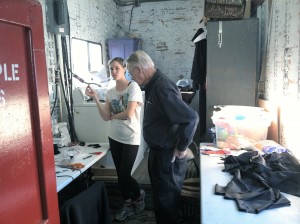I’ve written in previous posts about how the doctors proposed doing a craniotomy on my unresponsive father. They were very aggressive in pushing my mother for a fast decision and they made it seem like the surgery was absolutely necessary. I was furious with them but managed to put on my best hospice social worker manner and request to see s advance directive, reminded my mother that on a previous hospitalization my father had signed a Do Not Rescusitate order, and had specifically stated that he did not “want to be a vegetable.” The surgical team stepped into the hall so we could discuss what to do, but really so they could whisk my dad off to surgery as soon as we said ok. They seemed surprised when I stepped out and told them we wanted hospice, named the hospice provider we had chosen, then said, I work for them and I do know what I’m looking at.”
Needless to say, I’m troubled to know that doctors routinely suggest procedures that aren’t likely to benefit the patient. I’m just as troubled to read that they themselves refuse the same procedures. What ever happened to “First do no harm”? Unnecessary medical procedures can harm the patient. I have to believe my dad’s death was more comfortable than if we’d let them cut away part of his skull. Second, these procedures create false hope in families and obscure the truth about the patient’s prognosis. Rather than remembering the good times, preparing for grief, and making arrangements for how to care for the dying person at and after the time of death, families sit and watch for any glimmer of improvement that will not come. Finally, these procedures squander resources that could be redirected to persons who could truly benefit from them and could return to being productive members of society.
Do you think about quality of life? Have you considered your role in the universe? What does the medical system owe you? What do you owe the system? Society? Isn’t it time to consider quality of death? The doctors do.
 Todays Gray Matters Valuing the Wisdom & Purpose In Aging Well
Todays Gray Matters Valuing the Wisdom & Purpose In Aging Well
